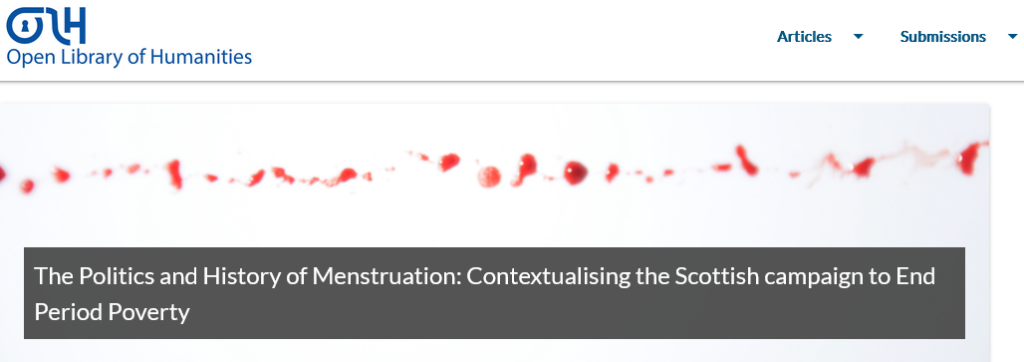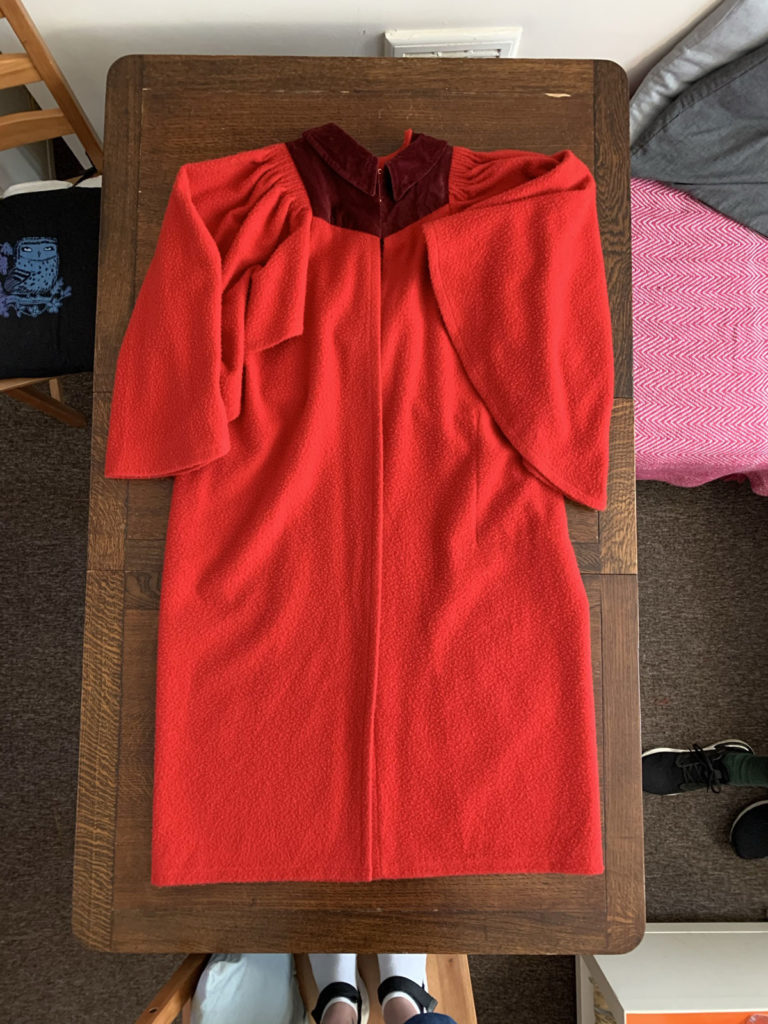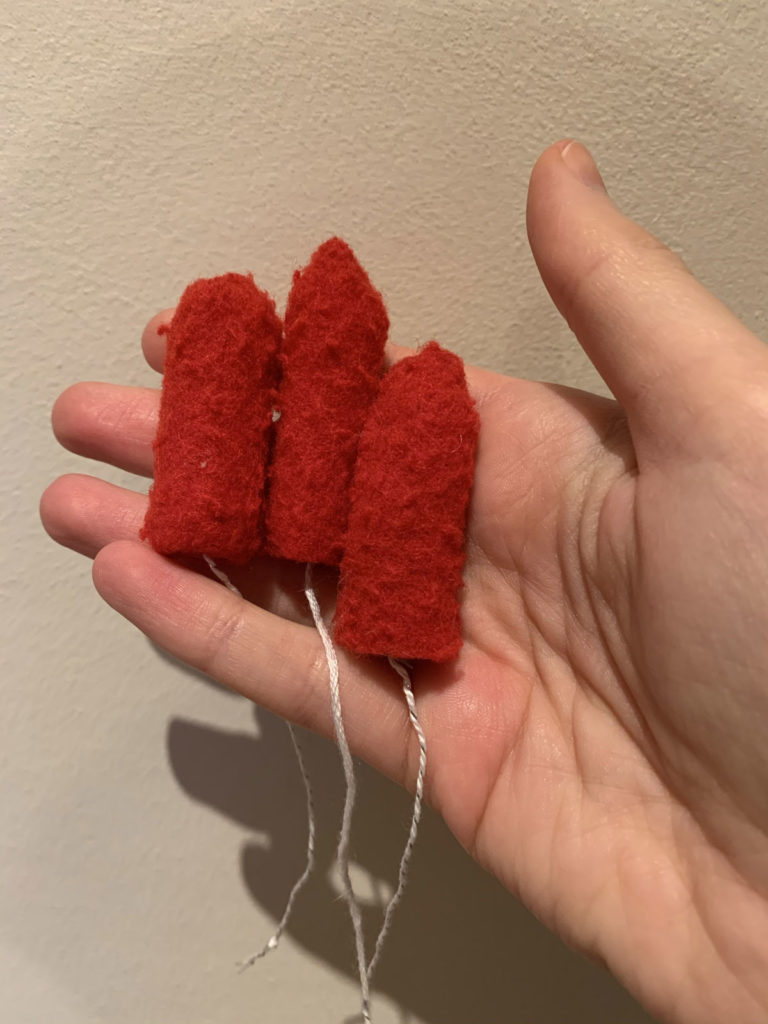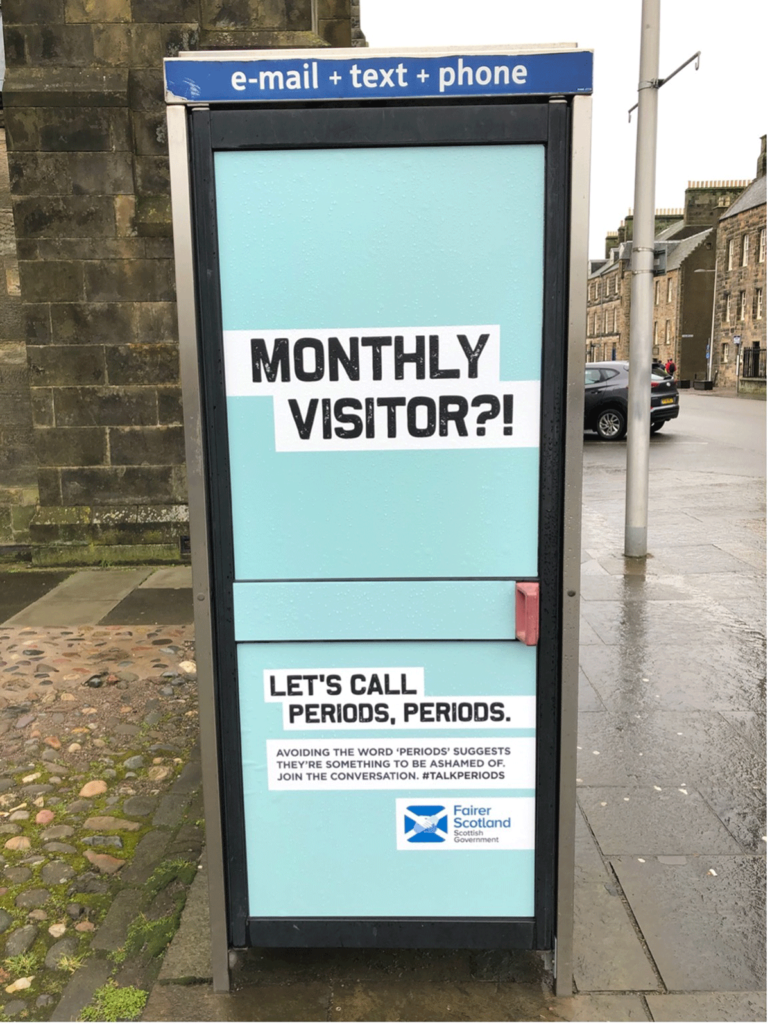Interview with Bettina Bildhauer – Open Access to period products
It’s Open Access Week 2022! With Open Access on the everyone’s mind we wanted to highlight some recent open access research that really struck a chord with the Open Access team. Here we have a special interview with Professor Bettina Bildhauer, the co-editor and contributing author of a Special Collection entitled ‘The Politics and History of Menstruation’. Bettina is Director of Research for the School of Modern Languages at the University of St Andrews and holds the position of Professor within the German department.

“Accessibility was so important to all of us from the Menstruation Research Network, because we knew so many activists and campaigners who wouldn’t find our analysis of the successful Scottish campaign if it was behind a paywall”
___
Interviewer: Kyle Brady
Interviewing: Professor Bettina Bildhauer
(KB) Thanks for taking the time to speak to us Bettina. First off, we must mention your recently published edited Special Collection on ‘The Politics and History of Menstruation: Contextualising the Scottish campaign to End Period Poverty’. This was published by Open Library of Humanities open access – with all articles freely and openly available. How important was it to you that this collection was accessible to all?
(BH) Hi Kyle, thanks for speaking to me. Accessibility was so important to all of us from the Menstruation Research Network, because we knew so many activists and campaigners who wouldn’t find our analysis of the successful Scottish campaign if it was behind a paywall. People all over the world are pushing just now for new laws around menstruation: against tampon tax, for free period products or for menstrual leave. Scotland was the first country to pass a law on making period products free for everyone (though Kenya had done this for schoolkids four years earlier). We published a briefing paper on what we learned here so people can check their chances to succeed with their own campaigns.
(KB) Your introductory article gives the historical and social context behind The Period Products (Free Provision) (Scotland) Act 2021. How did your research lead to a link up with the national campaign to make period products free in Scotland?
(BH) The campaign really inspired us and prompted us to think why this is happening in Scotland right now. We support the Period Products Act, because it brought menstruation into the public conversation and has helped lots of people out of a tight spot already. But it’s not unproblematic: it still assumes that we need industrial products to menstruate and that bleeding is somehow a problem that needs solving. We hope that our research findings will feed into making the next steps even more beneficial.

[KB] In your experience, what part do you think research institutions play in shaping social change in society? Could more be done to affect change in other areas? Are there barriers that inhibit collaboration and partnerships that could make tangible changes like the Period Products (Free Provision) (Scotland) Act 2021?
[BB] Great question. I think that researchers and artists often come up with the visions that lead to tangible change, but decades down the line. Theories of menstruation and gender published in the 1990s fed into the political changes we are seeing now. Affecting immediate social change is mainly the job of activists and legislators – though many of us in the Menstruation Research Network are both, and we love to hear from people wanting to work with us.
[KB] Your research spans many areas from German literature to film and visual culture to medieval history. Can you explain what led to your research interest in menstruation? Was this a common thread in your career or is this a new interest you are starting to explore?
[BB] I know, this is a strange one. My first book tried to find out why German-speaking people in the thirteenth century were obsessed with blood. Part of the answer was that it helped to justify a gender binary of superior men and leaky women. Menstruation played a big part in that. It’s only recently that scholars in lots of other areas have become interested in menstruation, so I’ve been expanding my research into modern and Scottish history to link up with the fabulous current wave of menstrual scholarship. In the UK we’ve won funding from the Royal Society of Edinburgh and from the Wellcome Trust so I’m looking forward to continuing this work.

“The peer-review process was as stringent as any and it was a thrill to see our articles published days rather than months after the final proofs”
[KB] To go back to the Special Collection on ‘The Politics and History of Menstruation’, after your experiences publishing open access with OLH, has this changed the way you view open access publications as an author and as an editor, too?
[BB] Absolutely. I wasn’t sure whether an open-access publication would have as much scholarly credibility, but my co-editor Camilla Mørk Røstvik had done a research project on OA publishing and convinced us that this was the future. The peer-review process was as stringent as any and it was a thrill to see our articles published days rather than months after the final proofs. So, my next publications will all be open access, too – it’s not like I made money out of my traditional books anyway.
[KB] Scotland is also leading the way with the Scottish Universities Press, a fully open access press with collaboration and partnership between stakeholders as a core principle. Do you have any advice or words of wisdom for researchers scoping out potential publishers, especially early career researchers (ECRs) who might feel more hesitant to go with a newer academic-led publisher?
[BB] I know, I only recently heard about Scottish Universities Press, it’s such a great idea and long overdue. ECRs have to think about how an open access publication might look on their CV to senior academics on appointment panels, so I understand if they decide to go with a traditional press. It’s up to institutions and to those of us who are lucky enough to have a permanent job to drive the change towards OA publishing. Funding bodies and universities are actually doing a lot at the moment to make this the standard model.

[KB] From your perspective why was Scotland at the forefront on this Period Poverty movement? Is this a cultural question, political, historical, or all the above?
[BB] Ha! This is precisely the question we spent two years trying to answer – why Scotland, why menstruation, why now? The potted version is that lots of factors have to come together: the legislation fits into Scotland’s vision of itself as a forward-thinking nation, it can build on strong grassroots and political support, menstrual stigma is already waning and distribution networks for products are already in place, for example. The question my co-editor Sharra Vostral is now asking about menstrual rights campaigns succeeding elsewhere is not why, but why not? For a fuller answer, check our introduction, it’s open access!
____
You can read the Special Collection ‘The Politics and History of Menstruation’ on the Open Library of Humanities website, all of which is fully open access and free to read, download and share, so anyone engage and join the conversation #MenstruationMatters!